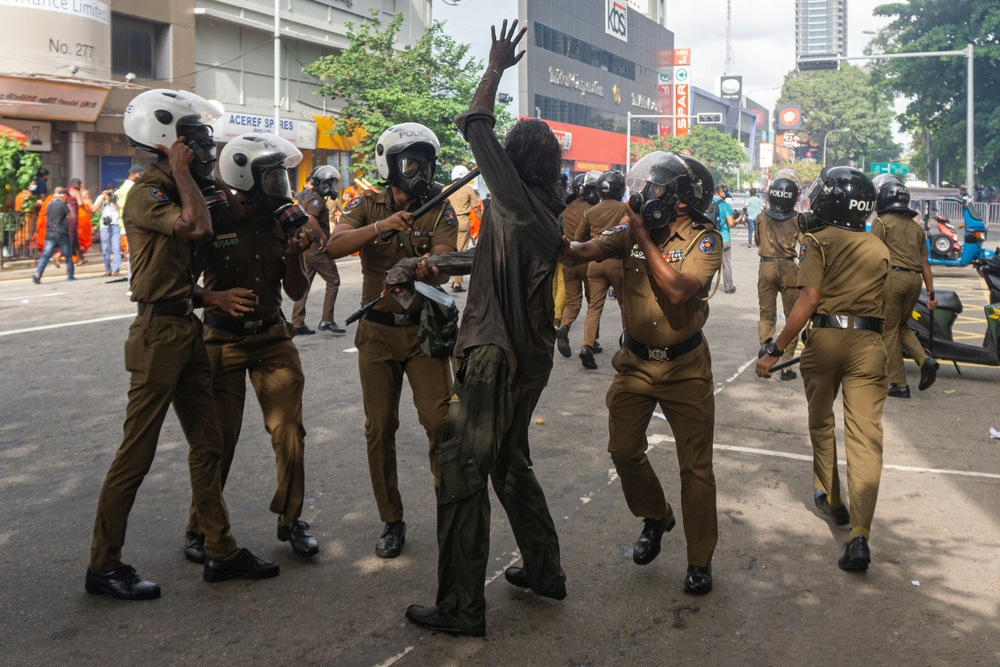In a mere few weeks, COVID-19 has drastically reshaped our way of living and has brought to light the many limitations of how societies detain and incarcerate people.
With physical distancing in prisons nearly impossible, prisons have rightly become a central topic of conversation. Overcrowded and lacking in basic hygiene and sanitation, they are inadequate to protect the health of prisoners and staff, and are thus reservoirs for the spread of communicable diseases like COVID-19. Approaches to other detention settings, such as immigration or juvenile detention centres, are also being scrutinised.
But there is one detention setting that has been virtually absent from media coverage and policy discussion, despite imposing conditions of detention that are, in some cases, even
worse than prison – drug detention and rehabilitation
centres.
Drug Detention Centres Operate Around The World
Information on drug detention centres is disturbingly scarce. Over 450,000 people are
estimated to be detained in government-run drug treatment facilities in Asia alone – that’s close to half a million people in just one continent, who we have little data about. And this figure doesn’t include private drug treatment and rehabilitation centres which operate around the world, in addition to or instead of public centres.
Most of the people at these drug detention and rehabilitation centres have ended up there involuntarily. Some have been mandated to be ‘rehabilitated’ after a conviction for drug use or drug possession, while others have been detained following mandatory drug testing or as a result of reporting by family members to the authorities.
What many of these centres have in common are the appalling conditions of detention including overcrowding, lack of basic sanitation, and inadequate food,
as TalkingDrugs has previously reported. The centres rely on excessively punitive and non-evidence based forms of treatment, often amounting to ill-treatment.
Reports of humiliation, beatings, and denial of food are rife, sometimes leading to death. The centres operate with no oversight by medical professionals, and with no consideration for informed consent and privacy. UN bodies have repeatedly urged for the closing of these centres, including in a 2012 joint
statement by twelve UN agencies, but these calls have fallen on deaf ears.
Scrambling to respond to the pandemic, authorities around the world are
adopting pragmatic early prison release schemes, or other policies aimed at reducing the number of people in prisons. Though international standards have long required people in detention to live in humane conditions, it is only in the context of COVID-19 that many governments have given real consideration to the public health implications of densely populated prisons and the almost universal failure to meet international standards.
But the conversation cannot end at prisons. We must push governments to put in place similar measures for the release of people from involuntary drug detention and rehabilitation centres – who are also in overcrowded facilities that are unequipped to adequately protect the health and safety of the people there.
UN Experts Agree: Drug Detention Centres Should Be Closed
Earlier this month, the UN expert on the right to health published a statement specifically urging governments to close drug detention centres and release people detained there as part of an effective and human rights-centred response to COVID-19. In the statement, supported by seven other UN-appointed experts, he also called on governments to “ensure that those released from prisons and other detention settings have continuity of care, access to adequate housing and healthcare in the community.”
This pandemic offers a tragic opportunity to reflect on why these people are detained in the first place, and of the policies that drive mass incarceration – not least the so-called ‘war on drugs’. This is a chance to review such policies and push for a radical shift in our approach to incarceration and detention.
We must not miss this opportunity to challenge the very existence of drug detention centres and the approaches which support them. We must work to ensure that post-COVID approaches to public health and detention do not reinforce or even expand forced drug detention and rehabilitation centres. This is the moment for social justice movements to call for incarceration, punitive rehabilitation and detention to be deprioritised permanently.


